1 March 1857: Job Senior, the Wharfedale Hermit and a pioneering polyphonic overtone singer, dies at Burley in Wharfedale
Harry Speight. 1900. Upper Wharfedale. London: Elliott Stock. Get it:
.Unedited excerpt
If an excerpt is used in the book, it will be shorter, edited and, where applicable, translated.
Let us now climb to the breezy heights of Burley Wood Head, with the spreading moors around, and here I shall have to allude to a character of a very different type to those lately mentioned. Everyone surely in the West Riding of Yorkshire, at any rate, has heard of old Job Senior, the Rumbalds Moor hermit, whose bent, uncouth figure, seeming half animal, half human, was such a familiar object to a former generation of residents about Burley, Ilkley, Steeton, Bingley, Keighley, and Otley. Old Job’s “mansion” was near the Coldstone Beck on Burley Moor, and to this spot on holidays crowds of people used to be attracted for the purpose of getting a glimpse of the strange being or of hearing him render his stentorian “blast.” The late Mr. Henry Whitaker, son of Mr. Jonas Whitaker, of Greenholme, knew the old hermit well, and had several times photographed him. I will give his description of him in his own words:
At the top of the Moor Lane at Burley Wood Head you turn to the right and follow on the higher Ilkley road, passing over the bridge which crosses the Coldstone Beck. Here there is a steep ascent which winds around the upper side of a rounded hill, and on arriving on the top of this path, the habitation of “Old Job Senior, the Wharfedale hermit,” could be seen. It stood on a triangular plot of ground, which he had apparently grabbed from what belonged to the lord of the manor, for he had built a wall at the bottom of a field and enclosed the small triangle adjoining Coldstone Beck, the upper end (where his hut or dwelling was placed) abutting on the Ilkley road. On this plot of ground he used to plant potatoes, and he had a primitive gate or latched door which led into his sanctuary. At one corner he had placed some rough hewn large stones, which had been set almost upright, and these were crossed at the top by another rough unhewn stone which was obliquely placed and formed the top of the opening to the entrance of his home. He had slated it with irregular and undressed slates, and he had dug sods of benty sward and peat, and had left the heather still growing on the latter. These were placed on the roof, which sloped at a certain angle, so that the rain water ran from it, and he appeared to be comparatively dry as he laid with his legs bent at the entrance to his primitive domicile. Here he used to hold high court, but the grand levee used to take place on Sundays, when numbers of persons from Bradford and Leeds used to assemble in front of his hut, whilst he gave them what he termed his “Blast,” which was a composition of his own, to represent sweet melody, but rather to gratify the delusion of those who were willing to be deluded by a designing old man, who found that his varied loud chant brought him a large store of copper as he lay singing on his bed of dried brackens and heather. When he made his ablutions I never heard, but there was plenty of pure water in Coldstone Beck close to where he was living. He had great compass of voice, and his lowest notes were most powerful. They sounded like the muffled tones of a maddened bull when he is bellowing in a rage; and then he used to modulate the tones until they became a loud groan and ended in a shriek as he gave his hearers the different variations of his own song, which he called “T’ wedding Anthem i’ twu voices.”
Often when we have been going up to Ilkley Moors to shoot moor-game at break of day we have stopped to listen to old Job, who had then no audience but was generally singing the 100th Psalm, and it was beautifully sung, his loud voice echoing amongst the rocks above, and sounding far down into the valley. Let us hope that this was genuine and sincere praise by the old man, for then he had no interested persons about him and must have been imbued with some sense of reverential feeling.
A very fair representation of Old Job is to be seen on the sign-board of the Hermit Inn at Burley Wood Head. He died in 1857, aged 77, and his burial in the churchyard at Burley was witnessed by crowds of interested onlookers. Such like eccentrics are now of the past, and are not likely to be seen again.
Comment
Comment
My emphasis above. The Mormons say he died in Q1, 1857 in the Otley registration district, which included Burley. I guess Ancestry has the exact date. Where exactly did he live? Not in The Hermit Inn (53.899604,-1.7749202).
Baring-Gould’s fictionalised account, quoted in full below, gives as source “The Hermit of Rumbold’s Moor,” presumably Old Job Senior, the Rumbold’s Moor Hermit. An account of his Eccentricities & Remarkable Life, a pamphlet dug up by Stackmole (Stackmole 2020). I think Baring-Gould, perhaps influenced by his own hymn-writing, is mistaken regarding Job’s unusual singing technique: “a wonderful performance of four voices—treble, alto, tenor, and bass” may suggest that Job is using the crag to echo one note at a time from each part, so that they hang together in harmony. In fact, I think that the passage from Harry Speight above (“i’ twu voices”) shows that he is amplifying the two fundamental tone and partial produced by what we now call polyphonic overtone singing, at which I am infinitely worse than Anna-Maria Hefele:
Speight has more elsewhere on Job’s singing:
Old Job Senior, the Rumbalds Moor Hermit, for many years used to come down to Bingley every Christmas wassailing. He generally hobbled into Morton first, his legs in winter always well wrapped round with hay or straw; his garments being held together with loops of string, and he was never very particular, like the ancient Romans, whether he wore a hat or not. For a lark the lads at the Grammar School would mount him on a cart, or carry him shoulder high into the town. He would then begin “wassailing”; his loud, stentorian voice, mingled with the barking of dogs which the said singing often provoked, attracting crowds of folk anxious to get a glimpse of the strange pilgrim from the moor. When at Bingley he generally slept in the barn at the back of the White Horse inn, and was always sure of obtaining some coppers from the boys at the adjoining school, who got rare fun out of him (Speight 1898).
Job Senior, the Hermit of Rumbold’s Moor
Job’s mother was Ann Senior, of Beckfoot, near Ilkley; he was an illegitimate child. His father, a man named Hacksworth, left him a little money when he died. Job grew up a spruce, active young man, very strong, and not devoid of good looks. He was employed as a labourer by the farmers round Ilkley; but afterwards went to live at Whitkirk, near Leeds. He there fell into disorderly ways, drank, and became careless in his dress and dirty in his habits. Yet he was a good workman, and when he returned to Ilkley he was readily engaged by the farmers to plough, mow, and reap for them. He was a good fence-waller, and being a man of prodigious strength, is said to have used very heavy stones for the purpose, and when days were short he was frequently seen walling by candle-light. Some of his walls are still pointed out, and the large stones he lifted elicit surprise. In winter he employed himself in wool-combing at a place called The Castle, near Ilkley. It is related of him that he once laid himself down on the combing-shed floor, and that some of his fellow-workmen chalked out his figure on the floor. By this outline he used to cut his shirts, the material being coarse harden, sewed with strong hemp-string.
Job was at one time an hostler in the village, and a person who knew him well at the time says that at this period his dissipated habits made him the subject of many a practical joke.
He was afterwards employed by the farmers at Burley Woodhead; but as he became old and infirm, and troubled with rheumatism, he could not work as formerly, but did what he could, making no stipulations for wages, but asking only for his board, and that his employers should pay him whatever extra they thought his labour entitled him to receive.
About this time he became acquainted with a widow named Mary Barret, who lived in a cottage near Coldstone Beck, on the edge of Rumbold’s Moor. The widow had a little garden and a paddock which, together with the cottage, had been left her by her husband, who had taken the land from the common and built the cottage on it. Job thought if he could secure the hand of the widow the house and land would be his for life. So one day he paid her a visit.
“I’ll tell ye what I’ve been thinking,” said Job Senior.
“What hast a’ been thinking on then, Job? Out wi’ it, lad,” said the widow.
“Well, I’ve been thinking thou’st getting ou’d, and thou lives all by thy sen i’ this house. And I’m a young man”—(he was about sixty)—”and I lives all by my sen by yond crag. Why should not thou and me make it agreeable to live together?”
“Dost a’ mean that I’m to take thee as a lodger?” asked Mary Barret.
“Nay, nay, lass!” answered Job; “I mean we’d better goa to t’ kirk together and be wed.”
“I reckon I’m ower ou’d for that,” said the widow. She was in her eightieth year.
“I doan’t know if tha be ou’d,” said Job; “but I knows vary weel thou’rt bonny.”
No woman’s heart, not even in her eightieth year, is proof against flattery, and the fair Mary blushed and yielded to the blooming Job, and married they were.
“It’s an easy gotten penny by the light o’ the moon,” said Job, looking over his domain.
Mrs. Senior did not long survive her second marriage. She had a long sickness, and Job was kind to her in it. “It’s cou’d, Job,” she said to her husband one evening when he returned from his work on the moor. “It’s cou’d i’ this bed, and I cannot feel t’ warmth o’ t’ fire.”
“Thou shalt be warm, ou’d lass, if I can fashion it,” said Job. “But as I cannot bring t’ fire nigher thee, I mun bring thee nigher to t’ fire.” So he pulled up a couple of flags in the floor beside the hearth, dug a pit, and made the old woman’s bed in this premature grave, so that she could be close to the fire and comfortable, and if she wanted a cup of tea, could put out her hand and take the pot from the hearth.
“Eh, Job!” said old Mary another day, “I think I’d like summut good to eat afore I dies.”
“Ah!” answered her husband; “then I’ll get thee a rare good morsel, that’ll set thee up on thy legs again, ou’d lass.”
So he bought a pound of bacon, roasted it, caught the melted fat in a large iron spoon, and ladled it down his wife’s throat.
“It’s rare good now, isn’t it?” exclaimed the husband, as the old woman gulped it down. “Open the trap and I’ll teem (pour) down some more.”
The old woman lay back in her hole and groaned. “I’m boun’ to die!” she said.
“Nay, lass! take another spoonful first.”
But the poor creature was dead. Job looked at her disconsolately for a minute, and whilst doing so the fat of the frying bacon fell into the fire and blazed up. “Eh! but I mustn’t waste the fat,” said Job. “If t’ ou’d lass cannot take it, why, I mun eat it mysen. Ah! it’s varry good; but it’s hot. I reckon ‘t were too hot for her ou’d insides.”
Job now thought that the house, garden, and paddock were his own; but he was mistaken. The family of Barret, the first husband of Mary, claimed it and took possession of the field. Job clung desperately to the cottage and the potato-garth. One evening when he returned from his work he found that the cottage had been pulled to pieces. He had hidden some money in the walls, and this was either lost or stolen. His rage and disappointment completely disturbed his brain, and from that time forward he lived in a miserable hovel he erected for himself out of the ruins of the house, in idleness and squalor.
His hut was like a dog-kennel; to enter it he was obliged to creep on hands and knees. Within it was only large enough for him to lie down in and turn himself about: it was thatched, and provided with a rude door, but no window. The garden had contained fruit trees; but these he stubbed up, and instead planted the whole garth with potatoes. He made large, unsightly ridges, and put in a great quantity of seed, always planting for the following year when he gathered his crop in autumn. In one corner of his garth was a peat fire where he roasted his potatoes. His custom was, when eating, to sit with one leg on each side of the fire of peat, his little bag of oatmeal before him; then with his staff he poked the potatoes out of the embers, peeled them with his dirty fingers, rolled them in his meal bag, and then ate them. He always drank his water warm.
“Do you drink your water warm, Job?” asked a visitor.
“Yes,” said the hermit, “I reckon I does.”
“And your butter-milk too?”
“Aye, aye. Sithere.” And he poked two stone bottles out from the embers. “I do it to clear my voice,” said the hermit. “Now thou shalt hear my four voices.” He then got up, set his face to the crag, and began a wonderful performance of four voices—treble, alto, tenor, and bass. He said he had picked up his “four voices” by listening to the choir in Leeds parish church. He usually sang sacred hymns, such as “While shepherds watched their flocks by night,” “Christians, awake,” and the Old Hundredth. He went about the country in winter, singing in four parts for money, and his performance was sufficiently remarkable for him to be brought to perform in public at the theatre at Leeds, and in the Headingly Gardens and the Woolsorters’ Gardens at Bradford, where he stayed for weeks at a time. He would sleep in any outbuilding or blacksmith’s shop; indeed, he was so dirty that few people would like to have given him a bed in their houses.
He used to walk leaning on two rough sticks, wearing a pair of heavy wooden clogs on his feet, stuffed with hay, his legs bandaged with straw. His coat was of many colours and much patched; his trousers were to match. He wore no braces, but kept his trousers in position with a hempen belt, part of an old horse-girth, which he buckled round his body. A bag on his back was fastened at the front to his belt. His head was adorned with a hat of the most antique shape, without a brim, and stitched together with hemp-string.
The condition of his skin, which had not seen water for years, need not be described. His hair, once jetty black, now hung in heavy clotted locks on his shoulders. His eyebrows were black and prominent; his eyes low-set and watery. He wore a coarse beard, grizzled with age, and very dirty. From his hat depended a tobacco-pipe, hung by a string.
“Never,” he would say to his visitors, “never take to nowt, but whenever you can get a penny, felt (hide) it, and let nobody know about it, and then they cannot get it from you. Get all the brass ye can, and as soon as ye can buy a bit o’ grund like this o’ mine, ye see, set it with potatoes, and it’ll keep ye. There’ll be a peck or two to spare; ye can sell them, and so ha’ brass agean. Are ye married?” said the hermit to a young man who went to see him.
“No,” answered the visitor.
“Then ye are right there, young chap. Keep so. If ye get a wife, ye’ll see shoo’ll be coming on wi’ a family, and then that’ll take all your brass. I’ th’ first place, ye’ll want a house and furniture, and then there’ll be rent and taxes, and your wife’ll be always wanting summat for hersen or the bairns. And besides, just look how more flour ye’ll want, and sugar, and soap, and candles. And look how mony more potatoes ye’ll want for them all to eat. Eh! but they’re the animals ‘at eats brass. They say that maggots eats cheese, and weevils eats cloathes, and mice eats corn; but wife and bairns eats brass, and it’s t’ brass as gets cheese, and cloathes, and corn. Nay, lad! have nowt to do wi’ them soort o’ cattle. And then—if th’ wife takes to bonnets and gowns, ye’re ruined directly. Nay, nay, grund is better nor a wife, and potatoes nor bairns. If ye want to save your brass and snap up a bit o’ grund, ye munna be married.”
Job’s end came as he was on one of his singing rounds. It is thought that some youngsters drugged his drink, in prank, at Silsden, and the consequences were a violent attack of English cholera. He got back to Ilkley, and crept into a barn belonging to the White Sheaf Inn; but the landlord seeing that his end was near, sent for the parish authorities, and he was moved to the Carlton work-house, as he belonged to Burley. He died in the course of a few days, at the age of seventy-seven, and was buried in Burley churchyard, near Otley (Baring-Gould 1874).
Here’s Sabine-Gould and Arthur Sullivan’s great hymn, Onward Christian soldiers, sung SATB at St. Andrew’s Church, Bangalore:
I wonder if anyone can come up with a satisfactory overtone version.
Something to say? Get in touch
Similar
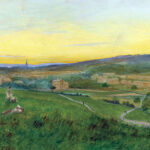 30 May 1835: Alfred Austin, future poet laureate, “Banjo-Byron that twangs the strum-strum,” is born into rural splendour at Ashwood, 48 Headingley Lane, Leeds
30 May 1835: Alfred Austin, future poet laureate, “Banjo-Byron that twangs the strum-strum,” is born into rural splendour at Ashwood, 48 Headingley Lane, Leeds
Comment
Comment
Ms X gives a range of 21 April to 5 May, and Tuesday April 29 is my best guess, given the typical working week of a broadcaster of the status of Savile.
Some background re the Dewsbury incident from the report:
This investigation initially focused on the historic Dewsbury incident that Operation Yewtree alerted MYHT to. This allegation related to a disclosure by Ms X that whilst she was an inpatient on a ward in a hospital in Dewsbury, Savile sexually assaulted her by attempting to lay on top of her and “French kissing” her. Ms X was 15 years old at the time. Initially the allegation was made in relation to DDH but it later transpired it was about an incident that occurred at Staincliffe Hospital. Staincliffe Hospital was taken over by DDH in 1990, and most of its buildings were subsequently demolished. Due to the historic nature of the incident and the lack of documentary evidence the investigation team were unable to find any evidence to corroborate Ms X’s account of the alleged incident. However Ms X’s GP records showed she was an inpatient at the time that the alleged incident took place and therefore the investigators conclude that the alleged incident took place. The lead investigator has no reason to doubt the account of Ms X as her statements to the police and the investigators were consistent and therefore the investigators conclude that the alleged incident took place as she described.
[…]
When Ms X was interviewed by the investigation team the account was consistent with that given to the police. She expanded the context of this account at interview and recalls that Savile sat on the bed next to her for a period of time whilst entertaining the other patients and visitors who were on the ward. Ms X remembers that when she knew Savile was visiting the ward she was very excited at the prospect of meeting him as he was a celebrity on the Top of the Pops television programme. She recounts that she never told anyone about what happened until recently as she was very embarrassed, felt it was wrong and a number of other people witnessed the incident.
[…]
This incident took place in an age of different social attitudes in relation to knowledge and awareness of safeguarding but nevertheless Savile’s behaviour even at that time was not acceptable and should not have been allowed to happen. The resulting effect on a vulnerable teenager has left her with a legacy that has affected her into adult life.
(Firth 2014)
This thread on Secret Leeds typifies a denial-anger-bargaining-depression-acceptance sequence that was common following the post-mortem revelations of Savile’s crimes, but elsewhere things may not have progressed as far. Take Otley. When Savile died in 2011, The Wharfedale Observer interviewed a local businessman, John Swale, about his “lifelong friendship” with Savile:
But it was in 1951 that they made their mark on history. John, 77, said:
We’d get a band on at the Civic Centre and James would be the MC and do the patter while I’d be on the door. Then, after we’d done a few, a lady wanted us to put a party on for her daughter’s 21st but we couldn’t afford a band. So I went to Neil’s Secondhand Bicycle and Radio Store and bought two old wirelesses and the innards of a gramophone, screwed lampholders onto a board and wired it all together so the lights flashed to the music. We took what was then the Wharfedale Cafe’s upper room for five shillings and put the records on with Jimmy spinning them and chatting – and that was the world’s first disco. If I’d patented it I could have made a fortune!
John helped Sir Jimmy take his first steps into showbusiness by suggesting he take up a job with the Mecca dance hall in Leeds. Jimmy, using a more sophisticated version of the prototype disco equipment, started putting records on and chatting during tea dances, and was soon in demand nationwide…
[But] at the height of his fame with [Radio Luxembourg] – in 1967, just before joining the BBC – he returned to Otley to present the town’s first Pop Civic Ball. The event, the brainchild of the chairman of Otley Council [and the town’s largest employer], Ronnie Duncan, proved a huge success and saw Jimmy performing at Otley Rugby Club in his trademark Union Jack jacket. This paper described it as: “The Swinging Scene Takes Over Otley”.
(Jack 2011/11/03)
Janet Smith’s review mentions the affair, citing Savile’s 1974 autobiography, As It Happens:
He wrote about an invitation by Otley Council to attend their annual mayoral ball which had not been raising much money in recent years. The Council obviously hoped that Savile’s presence would attract a large crowd. He attended on condition that the Council would provide him with six girls and two tents in which they would spend the night after the ball was over. The Council apparently agreed to this and six girls were selected from the many who applied (Smith 2016)
Dan Davies dug deeper and interviewed one of those involved:
The woman recalled it was bitterly cold when the girls got into their sleeping bags in the separate tent that had been set up for them in the clearing. It was at this point, in the early hours of the morning, that Jimmy Savile, who had been plying them with vodka all night but not drinking himself, came in and ‘tried it on’ with each of the girls.
Although the woman refused to elaborate on what had happened on the grounds she didn’t think it fair on the others in the tent that night, she did describe Jimmy Savile as ‘a disgusting old man’ and ‘a pervert’.
Her version of events was that they ‘were saved’ when youths from the rugby club shot out the paraffin lamps with air rifles. ‘They had followed us up there,’ she said. She described the girls huddling in the tent while a fight broke out between Savile and the youths. ‘[Savile] was violent, really nasty once he turned,’ she added.
[…]
I put it to Ronnie Duncan that six girls was a highly unusual payment for a personal appearance. ‘I just thought it was one of his gimmicks, you know, that would make good publicity for him,’ he replied. ‘I saw absolutely nothing sinister in it. Maybe I should have done but I didn’t.’ He also maintained there were no complaints from any of those who camped on the Chevin.
(Davies 2014)
Something to say? Get in touch
Search
Donate
Music & books
Place-People-Play: Childcare (and the Kazookestra) on the Headingley/Weetwood borders next to Meanwood Park.
Music from and about Yorkshire by Leeds's Singing Organ-Grinder.


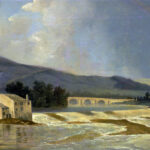
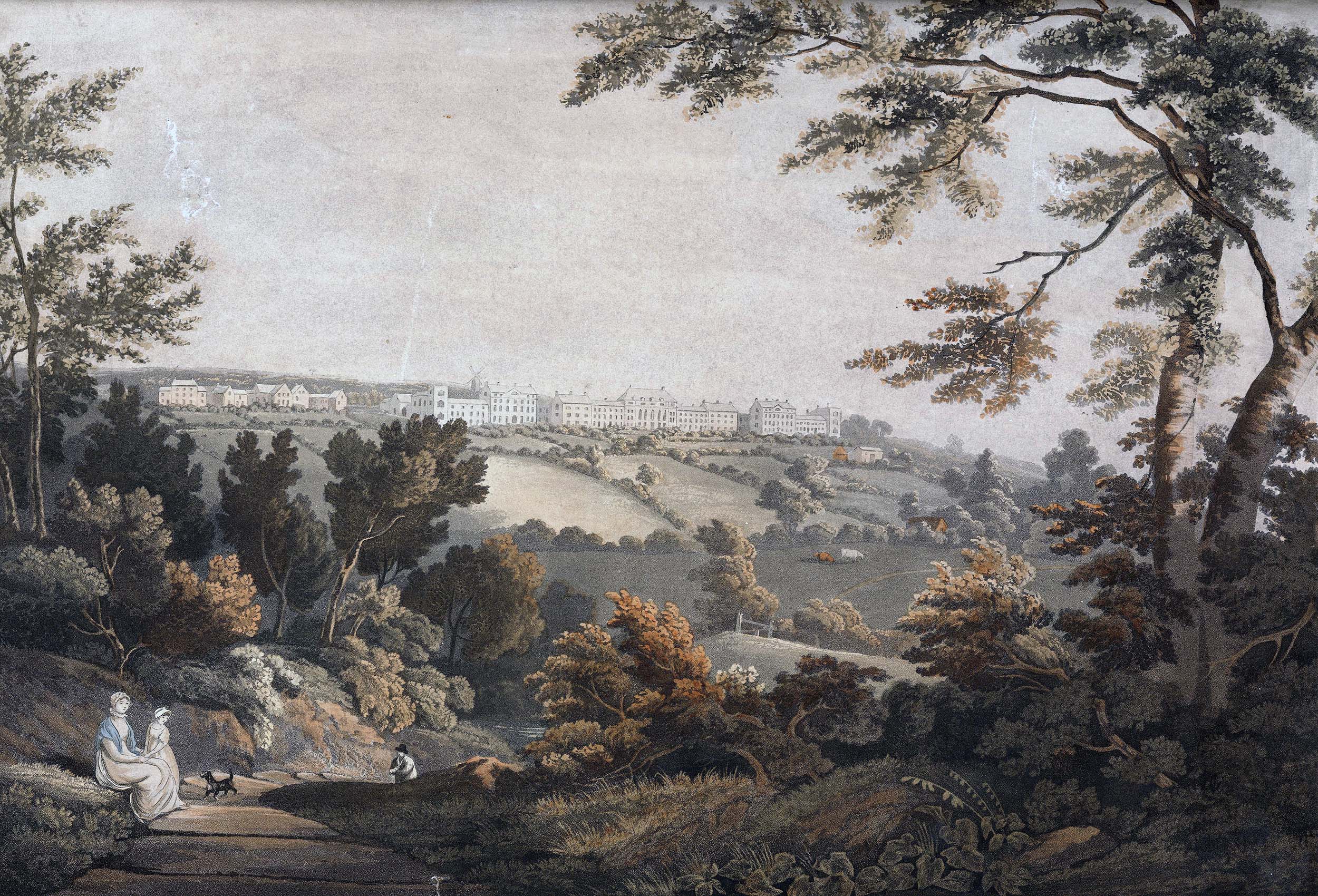
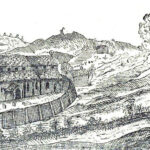

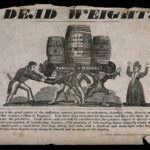

 Bluesky
Bluesky Extwitter
Extwitter